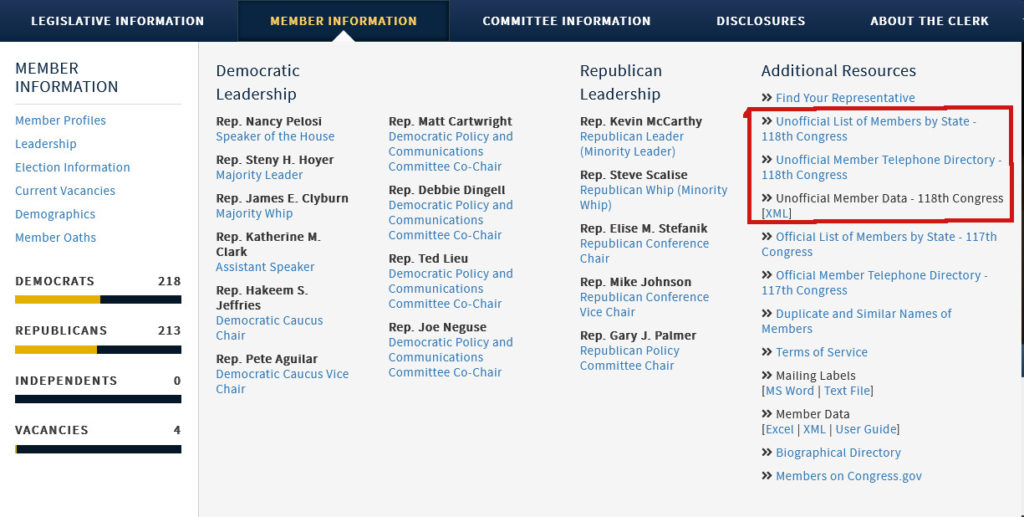The Congressional Data Task Force convened on March 14, 2023, to discuss a range of topics related to the use and management of data within the legislative branch. The meeting, which included representatives from various government offices and civil society organizations, highlighted several new and interesting developments. Go here for video and slides from the presentations.
Among the highlights:
- Implementation of the Access to Congressionally Mandated Reports Act is due by the end of the year
- The Library of Congress is planning to update/release an API for committee meetings, hearings, and committee prints by the end of 2022
- The House Statements of Disbursements will soon be published as CSV with a number of new identifiers
- The House Digital Service is planning for the upcoming Congressional Hackathon
- The Senate is continuing to make progress on the availability of its video

